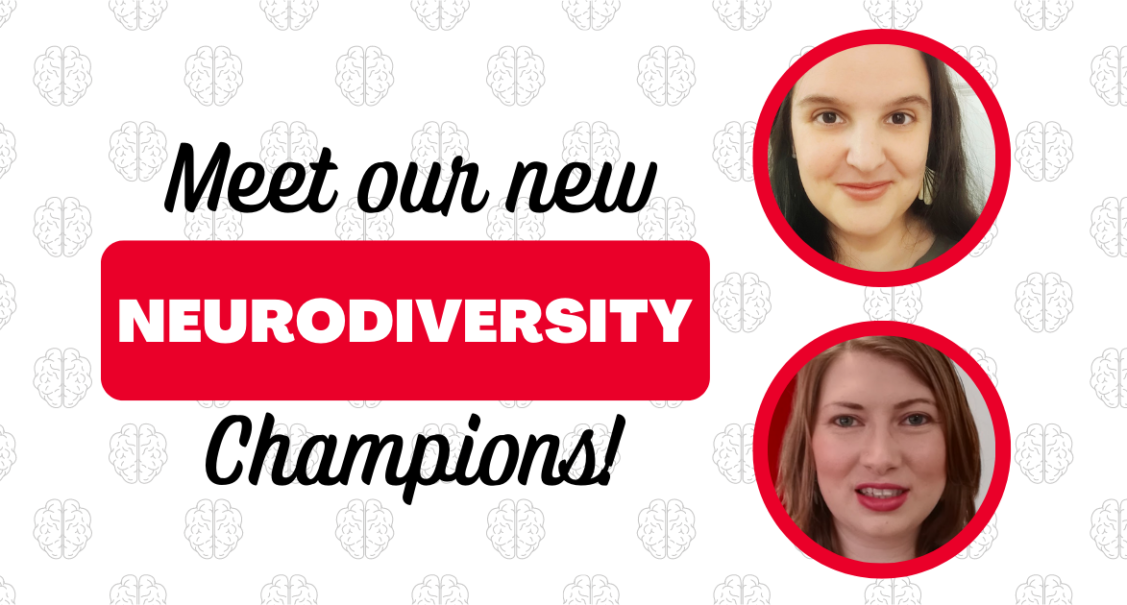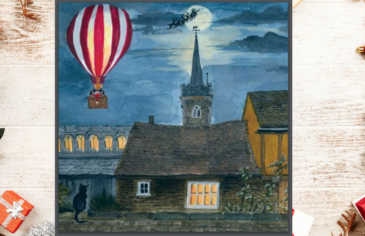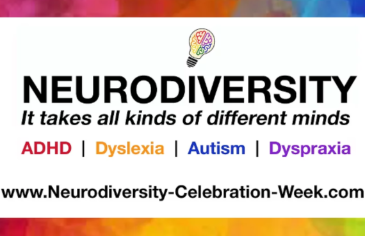Helen Green and Anabel Stindt have just been appointed as Neurodiversity Champions at Red Balloon. We asked them to tell us a bit about their stories and why they think neurodiversity is such an important issue.
Meet Helen!
C.S.Lewis, the beloved author of Chronicles of Narnia, wrote a beautiful description of friendship and how it is formed the realisation that an interest or a burden is shared by others: that moment of ‘What?’ You too? I thought I was the only one.” When I started to suspect I might have ADHD, at 32 years old, there was a moment of intense relief; the moment of “I thought I was the only one” was almost the removal of a burden so heavy I didn’t know I had been carrying it all my life. To know that my struggles, difficulties and peculiar quirks are most likely not individual personality traits or, as I had always believed, personal failings but are shared by a broad, wonderful and very real group of people. We have a name and a need for our particular way of thinking to be recognised. We are neurodivergent. Knowing how powerful this has been for me and an understanding of myself has led me to want to be a Neurodiversity Champion for Red Balloon. I want to support our staff students and their families to navigate life as a neurominority.
Meet Anabel!
After having spent over 30 years feeling like there was something wrong with me, and having various diagnoses, I finally found out that I was neurodivergent and suddenly everything made sense. It’s a strange feeling to finally understand why I am the way I am, and why life has always been such a struggle. Like most people with a late diagnosis, I found myself going through a wide range of emotions, from utter relief, to desperate sadness and a grieving of what could have been if I had been understood earlier. Many people argue against having a ‘label’, but I would argue that life gives us labels anyway; mine has now just shifted from just being ‘bad at life’ and ‘wrong’, to being neurodivergent. It has been nothing but freeing!
Thanks to my experiences, I am absolutely dedicated to raising awareness of neurodivergent conditions, and helping people to understand and accept them in the people around them and in themselves. I’m very excited to be a Neurodiversity champion at Red Balloon, as I believe we can make a real difference in the lives of our neurodivergent students and staff. Helen and I will be offering support in any way we can, and advocating for greater understanding and accommodations for all neurodivergent people in our community. Neurodiversity encompasses everyone; neurotypical and neurodivergent people. It’s about acknowledging that we all see the world differently, and that all our perspectives are valid. At Red Balloon, the majority of our students are neurodivergent, and so we want to not only support but also celebrate the strengths that this brings to our organisation.
A bit about neurodiversity!
This is a subject which is often misunderstood, so for clarity, here are a few relevant terms:
Neurodiversity – the idea that people’s brains work in different ways, and that there is not just one right way of thinking, learning or behaving
Neurotypical – people who have typical neurological development and functioning, someone who fits the societal norm
Neurodivergent – people who have differences in their neurological development and functioning, and therefore do not fit the norm
Examples of neurodivergent conditions include ADHD, ASC, dyslexia, dyscalculia and dyspraxia.
It’s important to note that everyone is an individual, and will not necessarily have the same strengths and weaknesses as others with the same diagnosis. This also has nothing to do with intelligence; people with these conditions have the full range of intellectual abilities as neurotypical people.



